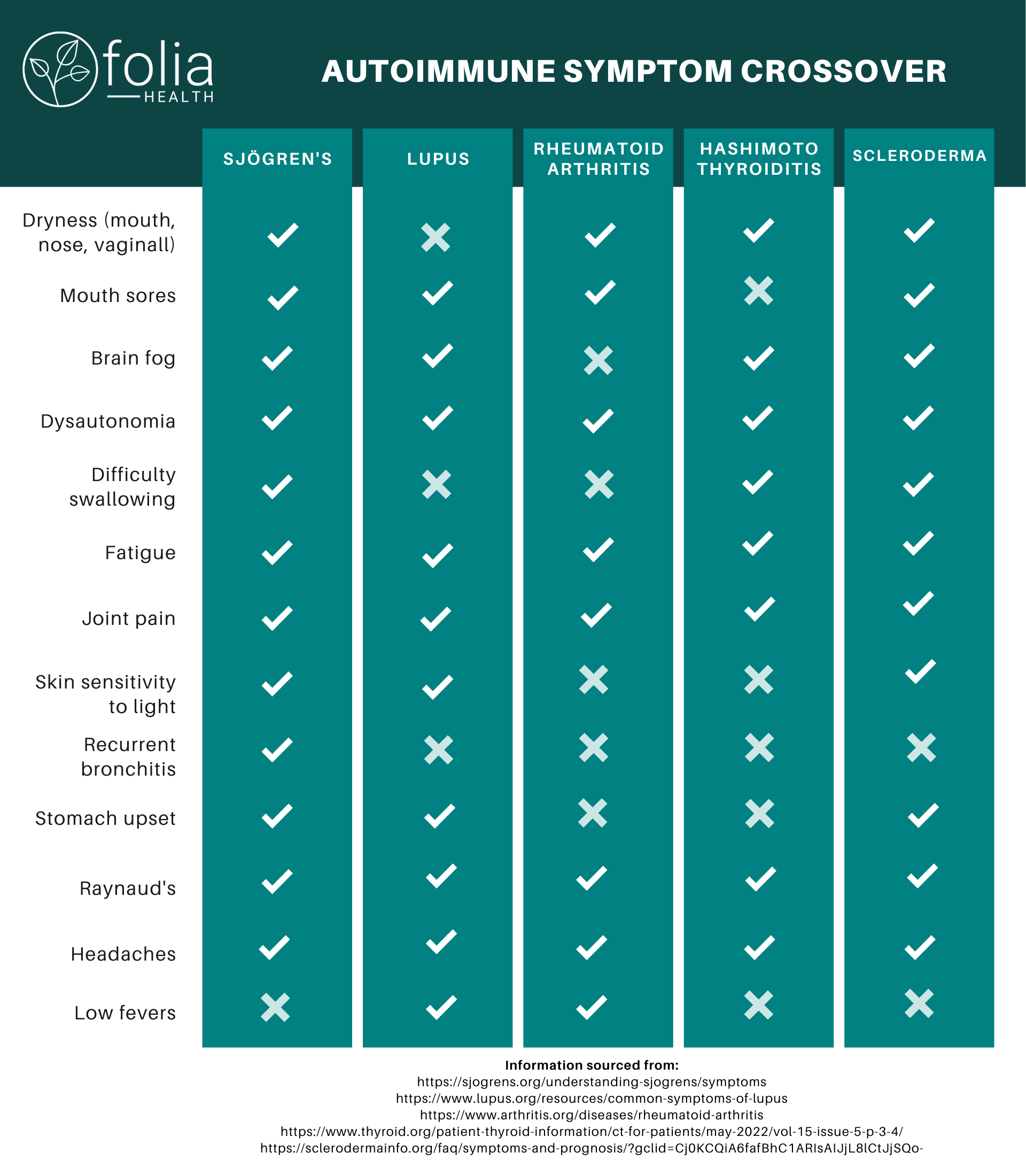Reducing time to diagnosis in autoimmune diseases
4.6 years: That’s the average time to diagnose an autoimmune disease.
Autoimmune diseases are a group of conditions where the immune system mistakenly attacks healthy cells in the body. These conditions are difficult to diagnose, as their symptoms can overlap or mimic those of other diseases, and there is often no single test that can definitively confirm a diagnosis.
Take, for example, this chart showing the symptom crossover between five autoimmune conditions.
If you live with an autoimmune disease or are on the journey to be diagnosed with one, you might be nodding your head in recognition of these challenges. Maybe you were incredibly lucky, and a blood test revealed high antibody levels to confirm a clinical diagnosis quickly. But it’s likelier that you’ve had many negative test results and been told there’s nothing wrong despite your everyday experience showing you otherwise.
Delayed diagnosis means delays in treatment, potential complications, and a serious toll on mental health. And we haven’t even talked about misdiagnosis yet.
So what can you do to reduce your time on the diagnostic journey? Some helpful diagnosis tips, abridged from the Autoimmune Association:
Find out your family medical history.
Autoimmune diseases tend to run in families so alert your doctor to any family history.
Regularly keep track of your symptoms, even if they seem unrelated.
One of the most challenging aspects of diagnosing autoimmune diseases is identifying the symptoms that are unique to each individual. Use Folia to track your symptoms and function in detail. Make sure to track things such as “The fatigue was so intense I could not shower.” The Folia app allows you to track the severity and frequency of symptoms in a simple and organized way. Customize everything you track and capture what you care about.
Connect to others who have autoimmune diseases.
Hear about their diagnostic journey. Ask them for trusted referrals to physicians who have experience with autoimmune diseases. If you don’t have any local support groups, find online communities to ask questions.
Get multiple opinions, if needed.
Get a thorough clinical exam, including diagnostic tests. If you don’t think your doctor is taking your concerns seriously and/or is referring you to mental health providers instead of listening, find another doctor who will take the time to listen. You must advocate for yourself and your needs because you know your body best.
Partner with your doctor.
You are an equal partner in your health. Show up to your doctors’ appointments feeling prepared with questions you have saved and objective data from the Folia app. Use Folia to create reports and graphs of your symptoms to show your doctor and have more informed discussions about potential diagnoses. Here’s an example of a symptom graph from Folia:
6. Learn more about autoimmune diseases and their symptoms at the Autoimmune Association.
The more informed you are, the better you will be able to communicate what is going on with your care team.






